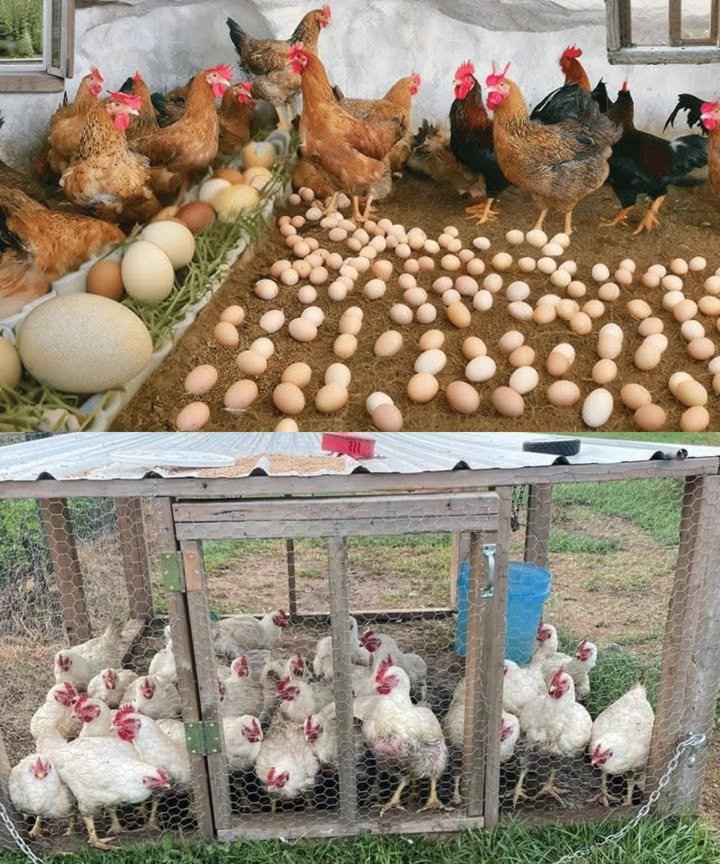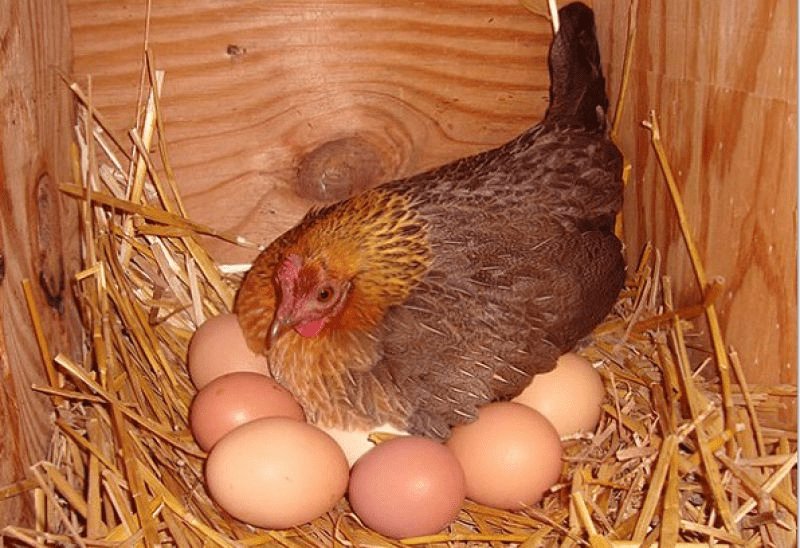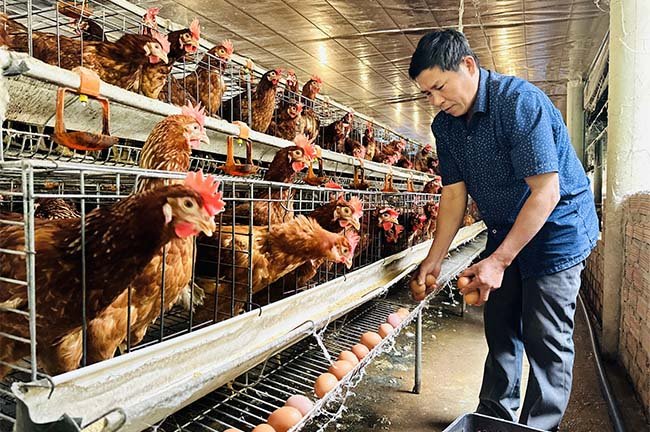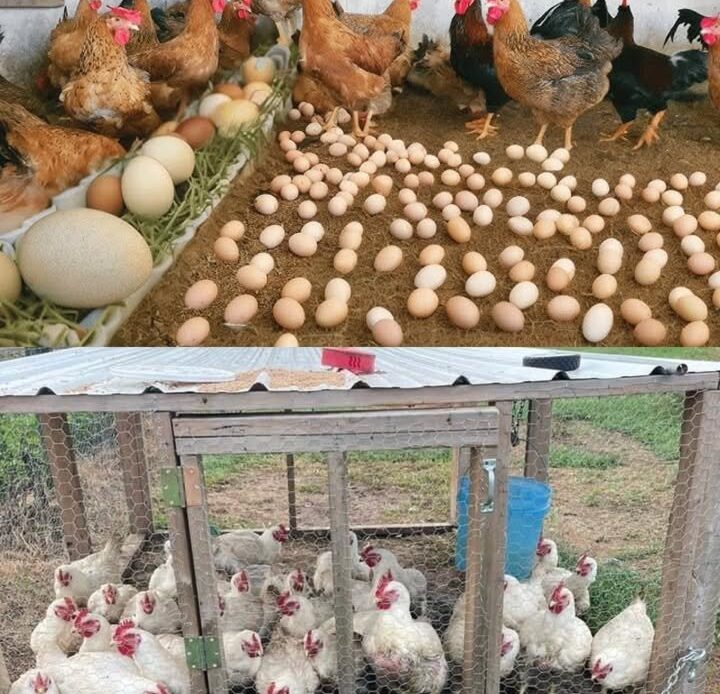Raising laying hens at home is an excellent way to enjoy fresh eggs daily while contributing to a sustainable lifestyle. Whether you are looking to reduce food waste, improve your garden, or simply experience the joys of backyard farming, keeping chickens can be a rewarding and beneficial activity. However, there are essential aspects that many beginners overlook. In this guide, we will uncover some of the most important secrets to successfully raising laying hens at home.
## **The Benefits of Keeping Laying Hens**

### **1. A Constant Supply of Fresh Eggs**
One of the biggest advantages of raising hens is having access to fresh, organic eggs. A healthy hen can lay up to 300 eggs per year, meaning a small flock can provide enough eggs for a household. Many people claim that home-raised eggs taste much better than store-bought ones due to their freshness and the quality of the hens’ diet.
### **2. Reducing Food Waste**
Chickens are natural recyclers. They can consume up to 200 kilograms of food waste per year, including vegetable scraps, fruit peels, rice, and pasta leftovers. Instead of throwing food waste into the trash, feeding it to chickens helps reduce household waste while providing them with a nutritious diet.
### **3. Natural Garden Helpers**
Hens can be a great asset to gardeners. They help control pests like slugs, snails, and insects that can damage plants. Additionally, they naturally aerate the soil as they scratch and dig for food. Their manure is also an excellent natural fertilizer that enriches the soil and promotes plant growth.
## **How to Set Up a Proper Chicken Coop**
### **1. Providing Enough Space**
Each hen needs at least **4 square meters of space** to move around comfortably. A spacious environment allows hens to engage in natural behaviors such as scratching, dust bathing, and foraging, which contribute to their overall well-being. Overcrowding can lead to stress, aggression, and reduced egg production.
### **2. Choosing the Right Shelter**
A chicken coop should provide adequate shelter from harsh weather conditions, including heavy rain, strong winds, and excessive heat. The coop must be well-ventilated to prevent moisture buildup, which can lead to respiratory issues. Including **raised roosting bars** inside the coop allows hens to sleep comfortably and feel safe from predators.
### **3. Ensuring Security Against Predators**
Predators such as foxes, raccoons, and stray dogs can pose a threat to backyard chickens. To protect them, the coop should have a **secure fence at least 1 meter high** and be buried slightly underground to prevent predators from digging under. Adding a locked door at night can further ensure the safety of your flock.
## **Selecting the Best Chicken Breeds for Laying Eggs**

Different chicken breeds have varying egg-laying abilities and temperaments. Here are some of the most popular and productive breeds for home egg production:
### **1. Rhode Island Red**
– One of the most common and productive breeds
– Lays around **250–300 eggs per year**
– Hardy and adaptable to different climates
### **2. Leghorn**
– Excellent egg layers, producing **280–320 eggs annually**
– Active and energetic but require more space to roam
– White eggs with strong shells
### **3. Sussex**
– Dual-purpose breed for both meat and eggs
– Produces **250–280 brown eggs per year**
– Friendly and easy to handle
### **4. Australorp**
– Holds the world record for egg-laying (364 eggs in one year)
– Great for beginners due to their calm nature
– Lays **250–300 eggs per year**
## **Feeding and Nutrition for Healthy Hens**

A balanced diet is crucial for ensuring high egg production and maintaining the overall health of your hens. Their diet should include:
### **1. High-Quality Feed**
Commercial layer feed contains the essential nutrients hens need, including protein, calcium, and vitamins. A **16–18% protein feed** is ideal for egg-laying hens.
### **2. Fresh Fruits and Vegetables**
Supplementing their diet with **leafy greens, carrots, cucumbers, apples, and berries** helps improve their immune system and provides additional nutrients.
### **3. Calcium for Strong Eggshells**
Eggshells are primarily made of calcium. Providing hens with crushed eggshells or oyster shells helps maintain strong eggshell quality and prevents shell breakage.
### **4. Fresh Water Supply**
Hens require a constant supply of **fresh, clean water**. A lack of water can quickly lead to dehydration and a drop in egg production. In hot weather, water should be changed frequently to keep it cool.
## **Maintaining a Clean and Healthy Coop**
### **1. Regular Cleaning**
Cleaning the coop regularly is essential to prevent disease and odor buildup. This includes:
– Removing manure and replacing bedding weekly
– Scrubbing water and food containers to prevent bacteria growth
– Checking for mold or dampness that could cause respiratory issues
### **2. Controlling Parasites**
Mites, lice, and worms can infest chickens if not managed properly. Using **diatomaceous earth** in the bedding and regularly checking hens for parasites can help keep them healthy.
### **3. Providing Dust Baths**
Chickens naturally clean themselves by taking **dust baths**, which help remove parasites from their feathers. Providing a dust bath area filled with sand, ash, and dry soil ensures they stay clean and comfortable.
## **Where to Buy Laying Hens**

If you’re ready to start your flock, laying hens can be purchased from:
– **Local hatcheries or breeders**
– **Farmers’ markets**
– **Online poultry suppliers**
– **Rescue organizations that offer ex-battery hens for adoption**
When buying hens, always choose healthy birds that are active, alert, and free from visible injuries or signs of illness.
## **Final Thoughts**
Raising laying hens at home is a fulfilling experience that offers numerous benefits, from a steady supply of fresh eggs to improved garden sustainability. By providing the right coop conditions, choosing suitable breeds, maintaining proper nutrition, and keeping a clean environment, you can enjoy the rewards of backyard chicken keeping with minimal hassle. Whether you’re a beginner or an experienced poultry keeper, these essential secrets will help you raise happy and productive hens at home.
